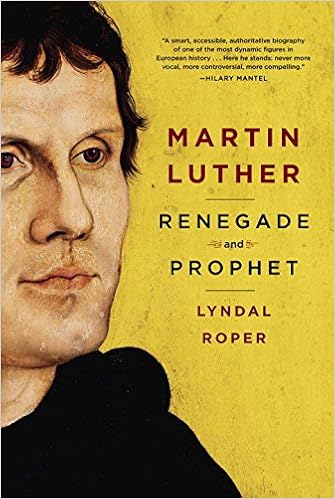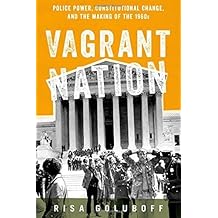 Legal historians, you may be stuck behind a newspaper (or twitter.com) this summer, but if you’re not satisfied with the history of the present, check out these book reviews:
Legal historians, you may be stuck behind a newspaper (or twitter.com) this summer, but if you’re not satisfied with the history of the present, check out these book reviews:In the Washington Post, E.J. Graff also reviews Nathaniel Frank’s Awakening: How Gays and Lesbians Brought Marriage Equality to America which “misses the vast uprising of ordinary lesbians and gay men who pushed their reluctant leaders to focus on marriage,” but does report “meticulously on the gay and lesbian lawyers who envisioned and ran the fight for marriage and the funders who helped put the effort over the finish line, carefully recounting the legal arguments and opinions all along the way.” In the same publication, Manisha Sinha reviews Fred Kaplan’s dual biography of Abraham Lincoln and John Quincy Adams, which “compares Lincoln unfavorably with abolitionists on the great issues of the day.” According to Sinha, “Kaplan’s understanding of the interracial abolitionist movement is outdated, quaint and erroneous, which undermines his attempt to set it up as a foil to Lincoln.”
Relatedly, in the NYRB, James Oakes reviews two of Sidney Blumenthal’s books about Lincoln: A Self-Made Man: The Political Life of Abraham Lincoln, 1809–1849 and Wrestling with His Angel: The Political Life of Abraham Lincoln, 1849–1856. Bryan Stevenson also engages with the history of lynching in A Presumption of Guilt, which references Sherrilyn Ifill’s On the Courthouse Lawn and Devin Allen’s A Beautiful Ghetto.
In the Nation, Elizabeth Bruenig reviews several books on the reformation (Martin Luther: Renegade and Prophet by Lyndal Roper; The Protestants: The Faith That Made the Modern World by Alec Ryrie; Luther and His Progeny: 500 Years of Protestantism and Its Consequences for Church, State, and Society John C. Rao, ed.), positing a thesis that will please religious historians: “Theology is morality is politics is law—and whether or not it’s immediately obvious, the world is steeped in theology.” Jedidiah Purdy also reviews Ganesh Sitaraman’s new book, The Crisis of the Middle-Class Constitution, which argues, according to Purdy, that “the Constitution was written and adopted with the understanding that the political system it established could only work in a fairly equal economy, with no vast concentration of wealth and power at the top, no wasteland of poverty and exploitation.” (Also referenced here and here).
Chris Maisano’s The Fall of Working Class New York, in Jacobin, reviews Kim Phillips-Fein’s Fear City: New York’s Fiscal Crisis and the Rise of Austerity Politics, “an excellent new book on the 1970s New York City fiscal crisis.” (Tim Shenk reviews the book here too, and Fein’s book is also quoted in this discussion of the 1977 blackout).
In the LARB, Darryl Holter reviews On Tyranny: Twenty Lessons from the Twentieth Century (which is “not really a book at all. It’s really a manifesto: an opinionated and passionate call to action”).
 In the Guardian, Sofka Zinovieff reviews Last Hope Island by Lynne Olson (“an outsider with a keen sense of justice”), and Colm Tóibín reviews two books about James Joyce’s use of the law (Joyce in Court and The Ulysses Trials: Beauty and Truth Meet the Law), concluding that law helped Joyce “add spice to his work in progress, and to anchor it further in life in all its variety, particularity and strangeness.”Additionally, the New Books Network provides audible reviews of Max Krochmal’s Blue Texas: The Making of a Multiracial Democratic Coalition in the Civil Rights Era, Kiran Klaus Patel’s The New Deal: A Global History; Sarah Eltantawi’s Shari’ah on Trial: Northern Nigeria’s Islamic Revolution; Robert M. Browning Jr. Lincoln’s Trident: The West Gulf Blockading Squadron during the Civil War; William Davenport Mercer’s Diminishing the Bill of Rights: Barron v. Baltimore and the Foundations of American Liberty, and David R. Mahew’s The Imprint of Congress.
In the Guardian, Sofka Zinovieff reviews Last Hope Island by Lynne Olson (“an outsider with a keen sense of justice”), and Colm Tóibín reviews two books about James Joyce’s use of the law (Joyce in Court and The Ulysses Trials: Beauty and Truth Meet the Law), concluding that law helped Joyce “add spice to his work in progress, and to anchor it further in life in all its variety, particularity and strangeness.”Additionally, the New Books Network provides audible reviews of Max Krochmal’s Blue Texas: The Making of a Multiracial Democratic Coalition in the Civil Rights Era, Kiran Klaus Patel’s The New Deal: A Global History; Sarah Eltantawi’s Shari’ah on Trial: Northern Nigeria’s Islamic Revolution; Robert M. Browning Jr. Lincoln’s Trident: The West Gulf Blockading Squadron during the Civil War; William Davenport Mercer’s Diminishing the Bill of Rights: Barron v. Baltimore and the Foundations of American Liberty, and David R. Mahew’s The Imprint of Congress.  And finally, while we don’t always canvas the law reviews for these roundups, its hard to resist sharing this review of Risa Goluboff’s Vagrant Nation. In it, Tracey Meares revisits her 1998 article about constitutional criminal procedure, which argued that "a body of doctrine designed to ensure racial equality in law enforcement has now become an impediment to minority communities’ attempts to liberate themselves from rampant crime” and cautioned against “self defeating discretion skepticism.” Meares argues that “Goluboff appears to lament the Court’s inability to strike down vagrancy laws on the basis of substantive due process or something like it,” and adds that policing policy would feel no more equitable if courts had constrained it using fundamental rights principle, because “people place much more weight on how authorities exercise their power than on the ends for which that power is exercised.” Meares review also includes a detailed, if disheartening, review of New York City’s stop and frisk policy and the litigation that challenged it.
And finally, while we don’t always canvas the law reviews for these roundups, its hard to resist sharing this review of Risa Goluboff’s Vagrant Nation. In it, Tracey Meares revisits her 1998 article about constitutional criminal procedure, which argued that "a body of doctrine designed to ensure racial equality in law enforcement has now become an impediment to minority communities’ attempts to liberate themselves from rampant crime” and cautioned against “self defeating discretion skepticism.” Meares argues that “Goluboff appears to lament the Court’s inability to strike down vagrancy laws on the basis of substantive due process or something like it,” and adds that policing policy would feel no more equitable if courts had constrained it using fundamental rights principle, because “people place much more weight on how authorities exercise their power than on the ends for which that power is exercised.” Meares review also includes a detailed, if disheartening, review of New York City’s stop and frisk policy and the litigation that challenged it.